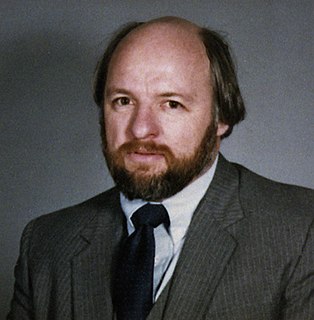A Quote by Greta Thunburg
If there really was a crisis, and if this crisis was caused by our emissions, you would at least see some signs. Not just flooded cities, tens of thousands of dead people, and whole nations leveled to piles of torn down buildings. You would see some restrictions. But no. And no one talks about it.
Related Quotes
When this crisis began, crucial decisions about what would happen to some of the world's biggest companies - companies employing tens of thousands of people and holding trillions of dollars in assets - took place in hurried discussions in the middle of the night. We should not be forced to choose between allowing a company to fall into a rapid and chaotic dissolution or forcing taxpayers to foot the bill.
A terrible premonition washed over me. This was how the whole world would end.... They would devour the forest and excrete piles of buildings made of stone wrenched from the earth or from dead trees. They would hammer paths of bare stone between their dwellings, and dirty the rivers and subdue the land until it could recall only the will of man. They could not stop themselves from doing what they did. They did not see what they did, and even if they saw, they did not know how to stop. They no longer knew what was enough.
People look at the future and see a black hole. They look at climate change and see an ecological crisis. They look at their leaders corrupted by money and see a political crisis. They wonder if they'll ever be able to pay off their student loan or own a house. Given this ecological, political and financial crisis, what they want is a different future. Their fundamental demand is a different regime to provide that future.
I was sad to see some of them go. Like a magic lantern that would project images on walls and people would travel the countryside with these magic lanterns and tell stories. And there was this cabinet that you would walk up to and it had a little peephole and inside the whole thing was covered in thousands of little mirrors.
There are people I'm drawn to that you just can't do a tiny, no-budget movie with. I would like to pursue some of that stuff, to see if I could do a movie with some of those people. And I don't really write scripts myself, but if I read a script I thought was really great, I would totally be up for doing a more traditional movie. It's just that I don't exist in that world.
right now.
By the time you get to year six, there's never a break . . . and you get tired. There's always a crisis. It wears you down. This has been a White House that hasn't really had much change at all. There is a fatigue factor that builds up. You sometimes don't see the crisis approaching. You're not as on guard as you once were.
Although this crisis in some ways started in the United States, it is a global crisis. We bear a substantial share of the responsibility for what has happened, but factors that made the crisis so acute and so difficult to contain lie in a broader set of global forces that built up in the years before the start of our current troubles.
At some point my friends and I began to ask, how can a country that produced hippies and such cool people also fight a war and kill people and act cruelly? You would see American GMC trucks go by and soldiers reaching down to whack a girl riding a bicycle. They would yank at her hat and she would get thrown and she would die. You would see Americans do this and feel like they can do anything in our country. But then you'd take an English class with an American soldier from Ohio who seemed just as nice as anyone, yet he was a soldier too.






































